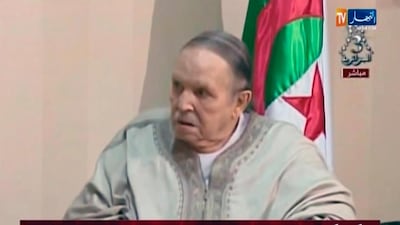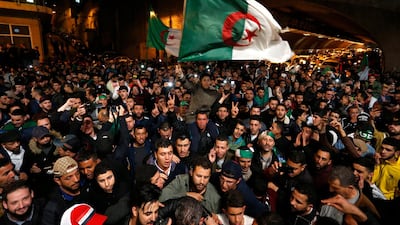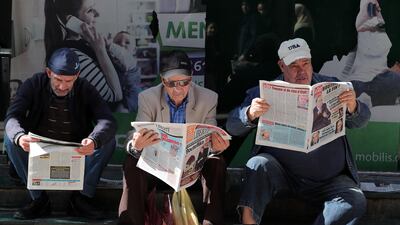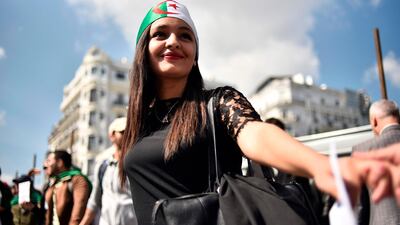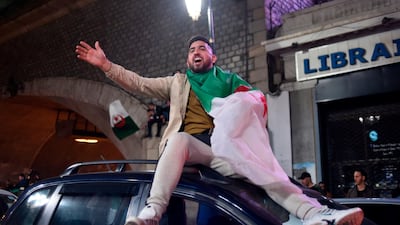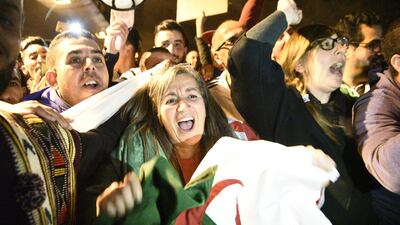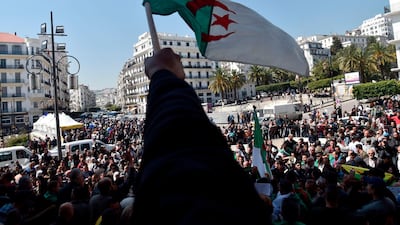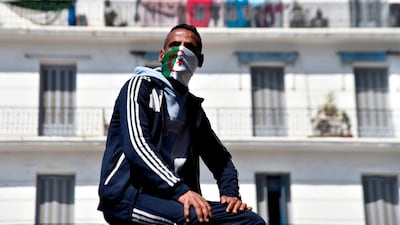The reign of Algeria’s Abdelaziz Bouteflika came to a sorry close on Tuesday as his 20-year tenure as president ended in a badly-lit room in Algiers. The pale 82-year-old, wheelchair-bound since a 2013 stroke, was so weak he could barely pass his resignation papers to the president of the Constitutional Council.
The images were a far-cry from his heyday when he took up the task of bringing the country together after a decade of destablising insurgency.
Mr Bouteflika cut his political teeth as a teenager who fought against French colonial rule with the National Liberation Army in the 1950s. After independence he quickly rose up the ranks to become foreign minister in an independent Algeria at 26 and a leading player in the National Liberation Front (FLN) government.
He became a protégé of defence minister Houari Boumediene, who would seize power from the Algerian government in 1965 and rule until 1978. The two remained close – with each other and the military.
In his role as foreign minister, Mr Bouteflika also became known as a vocal defender of developing countries and movements.
South Africa’s second post-apartheid president, Thabo Mbeki, said in 2001 that “Algeria was among the first countries to offer support to our national liberation movement through receiving military training and advice from the Algerian government”.
Mr Mbeki’s predecessor Nelson Mandela once said Algerian rebels made him a man after they trained him militarily in 1961 as Mr Bouteflika and his allies fought for independence.
“The Algerian rebels had to face a big colony of white men who were governing the majority of the population,” he once wrote.
As president of the 62nd session of the UN general assembly, Mr Bouteflika famously, and controversially, invited Yasser Arafat to address the body in 1974 and implore the world to listen to the Palestinian cause.
He regularly drew that anger of the United States who thought Mr Bouteflika partisan. The latter wanted to draw so-called post-colonial and ‘third-world’ states from the Cold War, US-Russia battle enveloping the world.
However, when his ally Mr Boumediene died in 1978, while still president, Mr Bouteflika was not made in successor and his standing began to ebb away.
He went into exile in Dubai, dogged by accusation of corruption and financial mismanagement that still have not been resolved. Returning to Algeria in 1987, he kept his head down as the country slowly descended into chaos but rejoined the FLN Central Committee in 1989.
In 1991, the Islamic Salvation Front was on the verge of a momentous electoral victory against the FLN amid a period of constitutional reform. The military, unhappy at the development, effectively took control and rejected the parliamentary results, sparking a brutal, vicious civil war that lead to 150,000-200,000 deaths.
A resurgent Mr Bouteflika would re-emerge as the military-backed president in 1999 and he vowed to stop the fighting. After granting amnesty to some of militants, the worst of the violence passed and the threat levels decreased.
During the following decades, Algeria sought to use revenues from gas production to direct economic development. As in diplomacy the model growth was tightly controlled but the result was a gradual modernisation of the economy. His official biography says extensive reforms were enforced, including to the judiciary, economy and education system and protection of the Imazighen population.
The president’s trust was hard to gain and the political and security elite was closely knit during his era. The president’s brother Said and Chakib Kheli, a fellow native of Oujda on the north African coastline, served as the important gatekeepers and enforcers for his rule. While the first vote to elect Mr Bouteflika was generally deemed a fair results, subsequent elections in 2004 and 2009 were hit by opposition accusation that he rigged the vote.
The protests that erupted in recent weeks put pressure on Le Pouvoir (the powerful), as the elite are commonly referred to in Algerian salons, to finally pull the plug on Mr Bouteflika’s place at the apex of the system. While the president received treatment in France and Switzerland, it was Said Bouteflika that had been his interface with the world. It was no longer credible that the man in the powered, cushioned wheelchair was the state’s real decision maker.
“By openly breaking with Bouteflika, the military has proved what most have assumed for decades: it remains the most powerful political force in the country,” wrote Haim Malka, senior fellow at the Centre for Strategic and International Studies, in a recent report.
“Its power had been obscured by its opaque coalition with the Bouteflika clan, the business elite, the security establishment, and senior political figures. The group of powerbrokers made policy decisions through consensus in order to maintain stability and prevent conflict,” he added.
The now deposed president has barely been seen or heard from since 2013 after his stroke, when he spent three months in a French hospital, and he has instead spent time in Switzerland.
He also reportedly survived a 2005 stomach ulcer, suffered from cancer and became weaker when his mother died in 2009. It appears he never got married or had children.
Many assumed he would die in power. Instead his opponents used his poor health as a symbol of a state that was failing to respond to the aspirations of its youthful population.
Eventually, the military establishment drew a line in the sand, ensuring the ailing Mr Bouteflika would stand down.
Struggling to pass his resignation letters, the president shakily gave way the burden of office.
